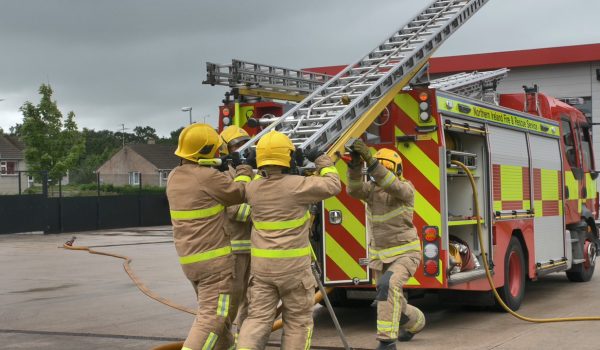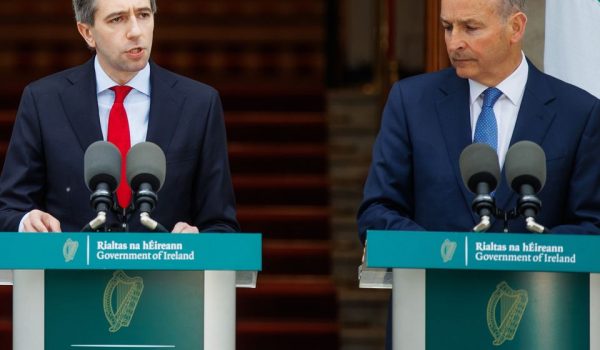
Minister Richard Bruton told the MacGill Summer School this morning that climate disruption is the biggest challenge facing this generation.
Previously Ireland set a target of a 20% reduction in greenhouse gas emissions by 2020. However current forecasts suggest that only a 1% reduction will be delivered.
He said Ireland has not been lacking in ambition, but in delivery, and that’s why the National Climate Action Plan is so vital.
Meanwhile, the government’s climate watchdog says Ireland is completely off course to meet its 2020 and 2030 targets.
The annual review from the Climate Change Advisory Council finds awareness of the need to adapt remains low, despite several recent extreme weather events.
The Council is an independent body set up by the government to advise on how Ireland is making the transition to a low carbon, climate resilient and environmentally sustainable economy by 2050.
But the signs so far are not good.
The Council says we are completely off course to meet our targets for next year and 10 years time.
Its Chair, Professor John Fitzgerald, says serious action is needed.
The Council is advising the government to reduce the national herd, encourage more contractors to retrofit homes, and stop generating peat-fired electricity next year.
It’s also renewing its call for the carbon tax to increase to € 35 per tonne in Octobers budget.
Minister’s speech in full –
“Climate disruption is the biggest challenge facing this generation.
Previously Ireland set a target of a 20% reduction in greenhouse gas emissions by 2020. However current forecasts suggest that only a 1% reduction will be delivered.
Ireland has not been lacking in ambition, but in delivery. There has been no roadmap, no coherent strategy that would in fact deliver on the commitments made.
We cannot countenance another such failure.
That is why the government’s Climate Action Plan has taken a completely different approach. In building up the plan, we have:
– Recognized the importance of building consensus on the issues. The Plan builds on the work of the Citizens Assembly and Committee and includes actions to ensure we engage people on the challenges and opportunities.
– Created new sources of momentum within the budgetary process with the requirement for Carbon budgets and the legislative system with the new Climate Action Bill.
– Adopted a strong governance structure, using the Action Plan model which has a proven track record.
Now, for the first time ever, we know the least cost, least burden roadmap of actions which will ensure we reach our 2030 climate commitments and put us on a trajectory to reach net zero emissions by 2050.
An immediate start must be made because the longer we put off action, the harder it will be and the more irreversible damages will have been done.
The Plan envisages radical change. In 2030, we will have 5 times the amount of renewables on our grid that we have today (requiring capacity to peak at 95% electricity generation from renewable sources). 33% of the cars on our road will be fully electric or hybrids. No new car purchased from that year on, will be fuelled by fossils, compared to 98% that are purchased today. When you are doing your weekly shopping, all the plastic in your local supermarket will be fully recyclable. Food waste will be halved. 30% of our homes will be fuelled by renewable heat vs 2% today.
As we saw with the Action Plan for Jobs, fundamental reform can only be driven by sustained, consistent action. A strong governance framework and oversight to ensure implementation set this Plan apart.
Symbolic gestures will do nothing to solve the climate crisis. There are no silver bullets. Responding to this crisis requires action across the board, led by the government, with structures in place to ensure accountability.
This Plan recognizes the balanced nature of the social contract which we need to strike with the Irish public. It is built on three principles: pursuing the policies which offer the least burden and greatest opportunity; recognizing the need to support those most exposed and least equipped to meet the challenge and ensuring every section of society make their fair contribution, while government leads.
To sustain this contract, we will engage in continuous monitoring and open feedback to ensure the policies we have in place are the best ones for our country. The greatest strides in the history of civilization have been in societies challenged by the need to meet huge change. This is a challenge to our creative capacity.
This challenge is also a test of the creative capacity for international cooperation. The European Union must seek to lead the change that is required and our capacity for solidarity will no doubt be crucial in this endeavour. A new toolbox will be required. One that leverages aid, trade, research and compacts in the pursuit of a radical shift towards decarbonization.
Ultimately, this is not about our ranking in some European Union or UN league table about ourselves and our children. It is about the resilience of our homes, our farms, our enterprises and our planet for our children and the generation which come after.
We will be living more connected, healthier lives. Our air will be cleaner. Our homes will be warmer. We will look back at the disposable culture we have now with disbelief. We will have enterprises able to compete and create jobs in a very changed world.
The time for rhetoric is over. Sustained, consistent action across every sector, driven from the highest level of government is the only way we will meet this challenge. It will define us as a generation.”





